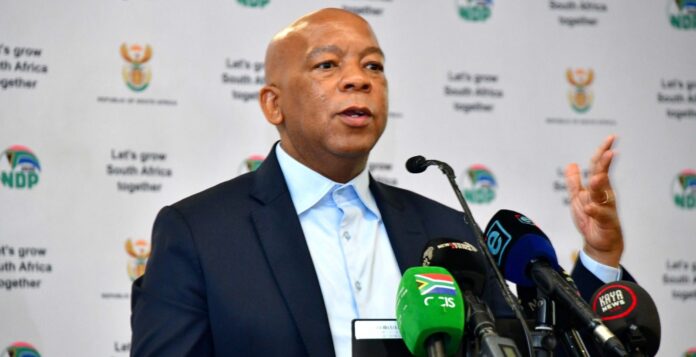Minister of Electricity and Energy Kgosientsho Ramokgopa asserts that the department will work around the clock to ensure that electricity prices do not spiral out of control.
Ramokgopa was giving an update on electricity distribution and generation performance at the GCIS offices in Pretoria on Monday.
He said the tariffs were increasing exponentially, forcing poor people into difficult financial positions.
His comment comes after the City of Johannesburg’s power entity City Power announced that it would implement a taxable service fee of R200 from the start of this month.
Energy poverty
“There is a situation of energy poverty in the country,” Ramokgopa said.
“In simple terms it means that electricity is there from the generation side; Eskom is giving you the kind of megawatts that are required for you to meet the demand, but people cannot afford the cost of electricity.”
“As a result of that, there will be days in the month that they don’t have electricity.”
He said the electricity pricing structure is eroding the ability of households and municipalities to afford electricity.
“There are a number of things that require attention. The issues of decarbonisation. There’s technology that has been proven and tested, so we can do the behind-the-metre intervention to make sure our people have electricity using the sun.”
He said the days of having communities complaining about having no electricity due to load reduction should come to an end, noting that this is due to the fact that solar power technology is now available.
100 days of no loadshedding
Meanwhile, in a weekly newsletter, President Cyril Ramaphosa complemented the energy action plan for successfully securing electricity for 100 consecutive days.
“Thanks to the diligent implementation by Eskom of its generation operational recovery plan as well as a stepped-up maintenance schedule, there has been a marked improvement in the performance of the power stations that produce the bulk of South Africa’s electricity,” said Ramaphosa.
“The improvement in the reliability of power supply has been a relief for households, who have been able to go about their daily lives without the inconvenience of loadshedding.
“It has also been a great relief for businesses.”
Ramaphosa said this improvement will boost consumer confidence in the second quarter of 2024, expressing hope that this will also improve investor and business confidence.
He said the energy action plan should continue its work, as this would further boost the national economy.
“We have reached 100 days without loadshedding by working together,” he said.
“This should encourage us to redouble our efforts and to strengthen the collaboration between all stakeholders in both the public and private sectors.”



